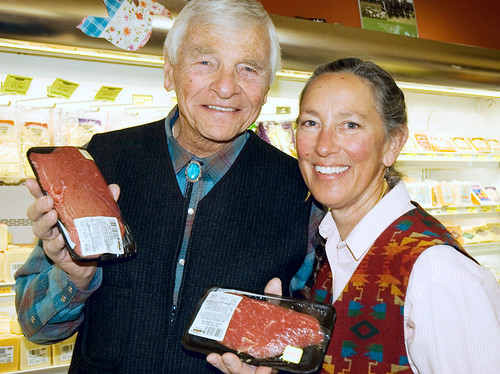
As part of USDA’s ongoing celebration of National Cooperatives Month, please join us for an upcoming webinar exploring the intersection of two important economic trends: a new wave of cooperative development and the rapid growth in demand for local foods.
This webinar – The Role of Cooperatives in Local Food Systems Development, on Thursday, Oct. 30, 1 pm Eastern Time – will feature national cooperative leaders and development specialists and USDA experts discussing the critical role co-ops play in developing local and regional food systems. Among the USDA staff on the panel will be Ag Economist Jim Barham; Elanor Starmer, our national coordinator for local and regional food systems; and Margaret Bau, a co-op development specialist who has helped launch over 30 co-ops nationwide. Also joining the panel will be Jan Tusick, director of the Mission Mountain Food Enterprise Center in Montana; Karl Sutton, a farmer/member of the Western Montana Growers Cooperative; and Robin Seydel, Community Development for La Montanita, a retail and consumer co-op in New Mexico.
As communities build local and regional food systems, many have found the cooperative business model to be an effective strategy to create robust supply chains that can move local food equitably, and profitably, from farm to plate.
Within local food systems, producer cooperatives have been the foundation of building a consistent and reliable supply of local food. For instance, twenty percent of operating food hubs which offer important aggregation, distribution, and marketing services for the local food supply chain, are cooperative enterprises. On the consumer side, retail food cooperatives (a type of consumer-owned cooperative) have long been strong local food supporters, creating vibrant markets for local farmers to bring their product to market and increasing a community’s access to local and healthy food.
The webinar is free and easy to join. Please join us Thursday, October 30th at 1 p.m. Eastern.
